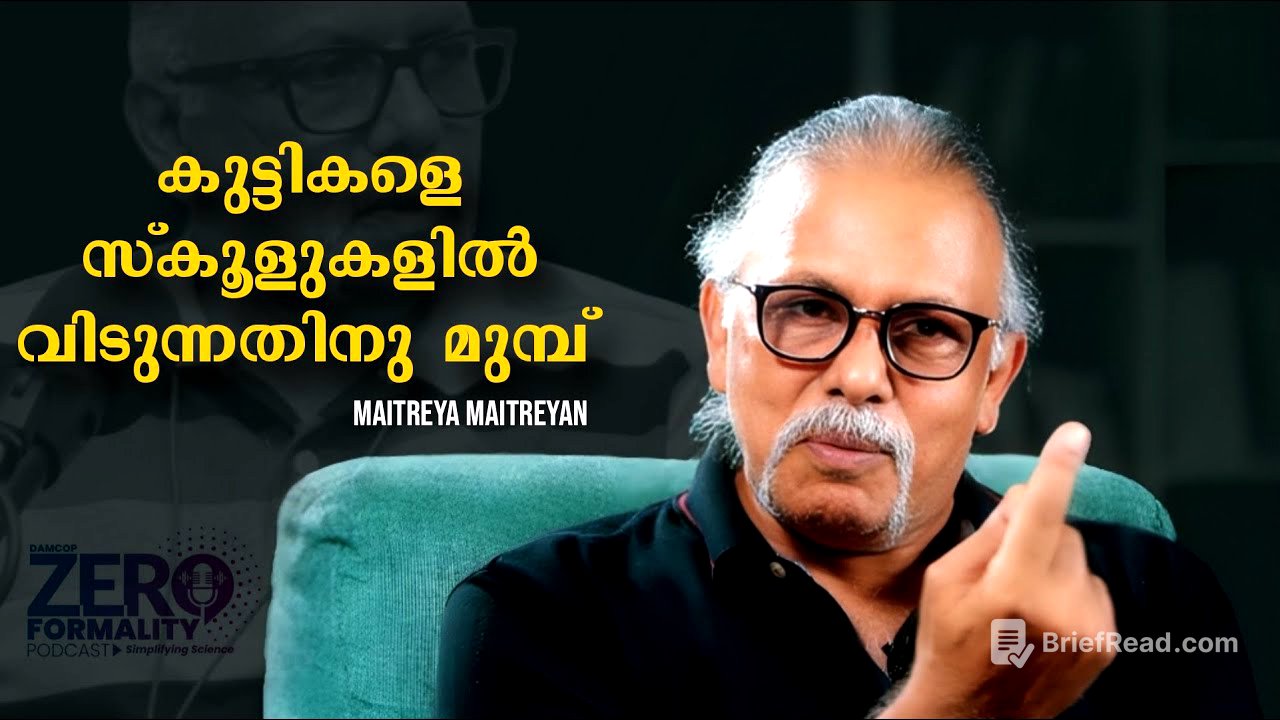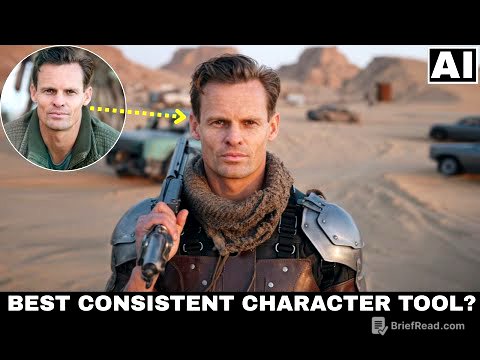TLDR;
This video critiques the current education system, arguing that it stifles children's natural curiosity and diverse talents by prioritizing conformity and preparing them for factory-like work. The speaker advocates for a child-centered approach that nurtures individual potential, develops all senses, and fosters a love of learning. Key points include:
- The current system domesticates children, suppressing their natural inquisitiveness.
- Education should focus on developing all senses and recognizing individual talents.
- Classrooms should be age-diverse and designed to foster exploration and discovery.
- The most important investment should be in early childhood education to identify and nurture each child's unique potential.
Critique of the Current Education System [0:00]
The speaker begins by highlighting the drastic decline in the number of questions children ask as they progress through the education system, suggesting that schools suppress their natural curiosity. The speaker asserts that the current classroom environment domesticates children, forcing them into conformity and stifling their innate desire to explore and learn. This system prepares individuals for factory work rather than fostering independent thinking and initiative.
The Need to Dismantle the Current System [1:17]
The speaker emphasizes the need to dismantle the existing educational system, which he likens to a prison. He argues that simply reforming the current system is insufficient, comparing it to trying to turn a bullock cart into a car. The fundamental basis of the system needs to be changed. The speaker advocates for a shift towards child-centered classrooms that recognize and nurture individual talents and abilities.
The Importance of Child-Centered Education [3:02]
The speaker stresses that creating child-centered classrooms is essential. He cautions against simply starting a few schools based on this model, as they may become exclusive or fail to provide relevant skills. Instead, the government should prioritize education that focuses on developing citizens who are independent and self-sufficient, not just preparing them for factory or office jobs. The goal is to guide children in discovering their potential and fostering their unique abilities.
Understanding Individual Potential [4:41]
The speaker explains that each child possesses unique abilities and talents. Education should focus on identifying and nurturing these individual strengths, rather than forcing all children into the same mold. Just as different vegetables require different growing conditions, each child needs a learning environment tailored to their specific needs and potential. The speaker also touches on learning disabilities, suggesting that these children should be at the center of the educational approach.
Rethinking Classroom Structure and Age Groups [5:38]
The speaker questions the practice of enrolling all six-year-olds in the first grade, arguing that children develop at different rates. He suggests that classrooms should be age-diverse, allowing older children to mentor and teach younger ones. This approach would create a more natural learning environment where children can learn from each other and develop at their own pace. The classroom should be a place where children discover their interests and talents, whether it be drawing, writing, or something else.
Developing All Senses [8:45]
The speaker criticizes the limited focus on the five senses in traditional education, noting that modern science recognizes seven or eight senses, or even more. He argues that education should develop all senses, not just sight and hearing. The speaker uses the example of blind people to illustrate the potential for developing other senses. He emphasizes that developing all senses allows for a more complex and complete understanding of the world.
The Importance of Sensory Experience and Early Childhood Education [12:33]
The speaker reiterates that education should focus on developing all senses to understand the world more fully. He uses the example of wine tasters to illustrate the potential for training the senses. He emphasizes that each child is unique and possesses unique genetic material. The speaker advocates for providing individual attention to each child, recognizing their potential, and guiding them in their studies. He concludes by stating that the most expensive classroom in the world should be the nursery class, where experts from various fields can identify and nurture each child's unique talents.









